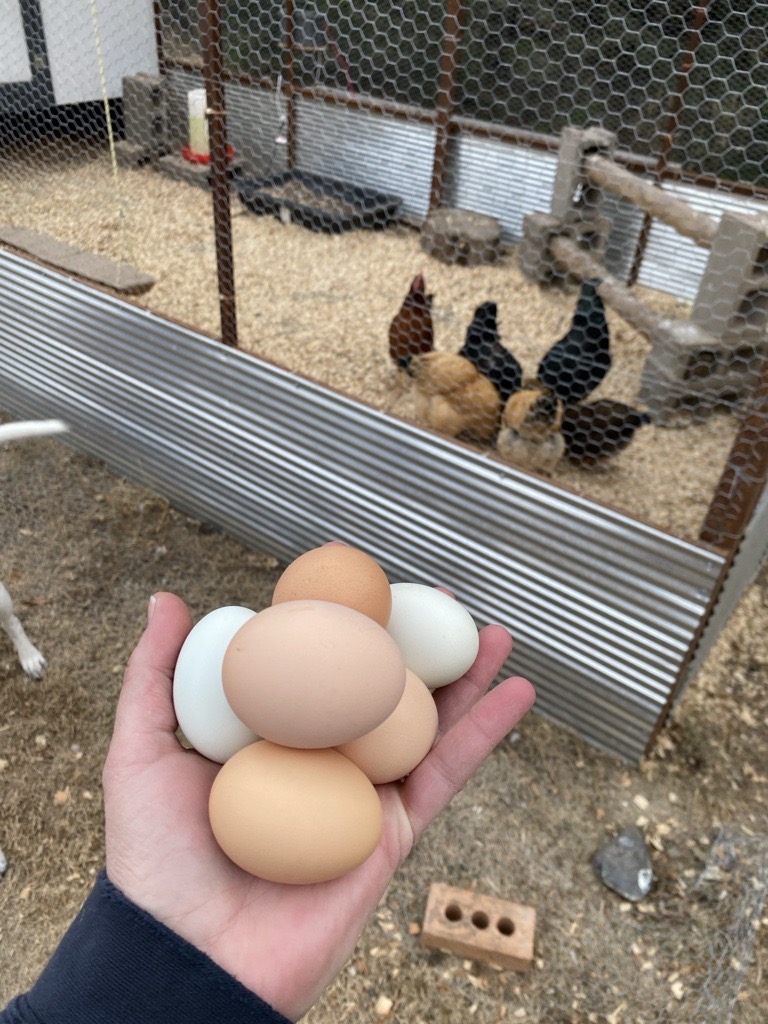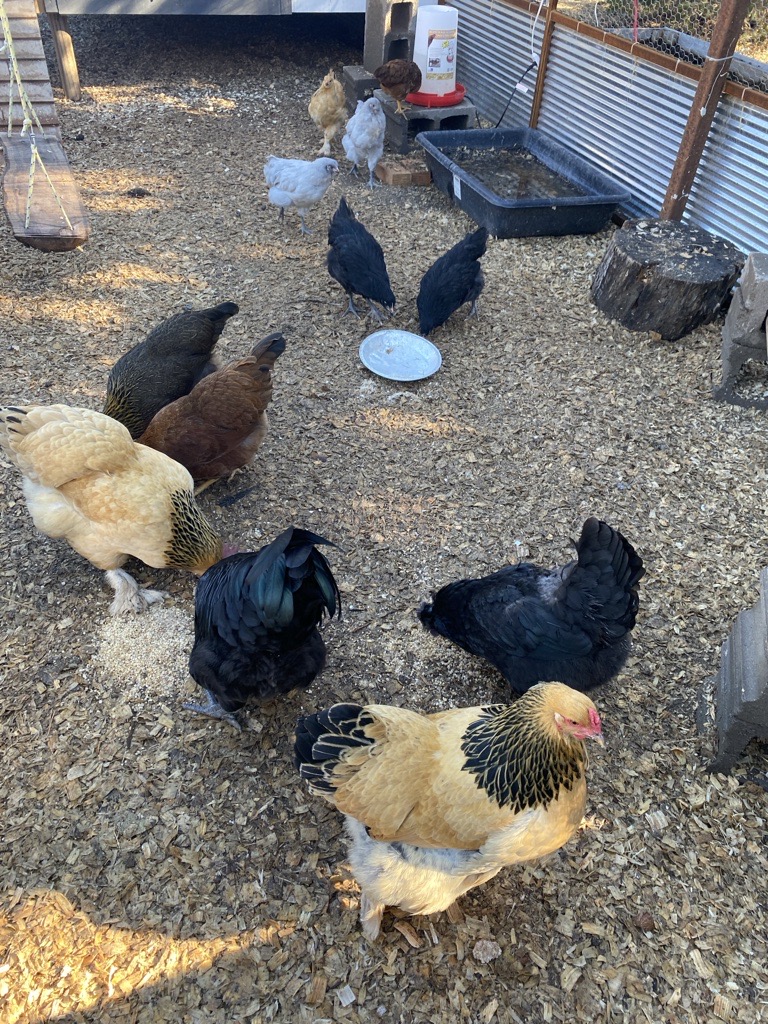
Feeding chickens in the summer months seems fairly easy. We let ours free range – with supervision since we have a den of foxes around – and they eat pretty much anything and everything, especially bugs. They are great for my garden at getting the bugs that would otherwise harm my plants, but once my plants start producing, I have to keep them away since they like fresh cucumbers and tomatoes. They still get layer feed and scratch grains, just not as much. But what about the winter months, when there’s no bugs to be found?
Chickens naturally slow down on egg production during the winter months due to shorter daylight hours and colder temperatures. In combination, these elements require them to conserve energy, thus the reduction in eggs.
When looking at what to feed your chickens during the winter, it’s important to note that chickens are supposed to slow down on egg production. That being said, you want them to have a balanced, nutritious diet.

Here’s a few helpful recommendations to keep your flock healthy over the winter:
- High protein poultry feed with a minimum of 16% protein (18-20% is ideal in winter.)
- *Treats: High-quality scratch grains that contain seeds, vitamins, and minerals specific to chickens (I use scratch grains that are 50% corn because they are high in fat and can help keep a chicken’s body temperature stable.)
- Whole grains and mash (These also help create internal heat as they digest.)
- Kitchen scraps (Make sure to look up what chickens can and cannot have.)
- Eggshells, dried and crush for calcium
- Dried bugs (I tend to stay away from these just because they are expensive, but I’ve been reading up on how to set up your own mealworm farm.)
Plan to feed your chickens about 1.5 times what they eat during the summer, and don’t forget the poultry grit since the ground is frozen and harder for them to peck out. As a extra special treat, our chickens get oats soaked in bacon grease and whatever is leftover from Thanksgiving dinner.
*Reminder that scratch grains and treats should not make up more than 10% of their daily diet.




